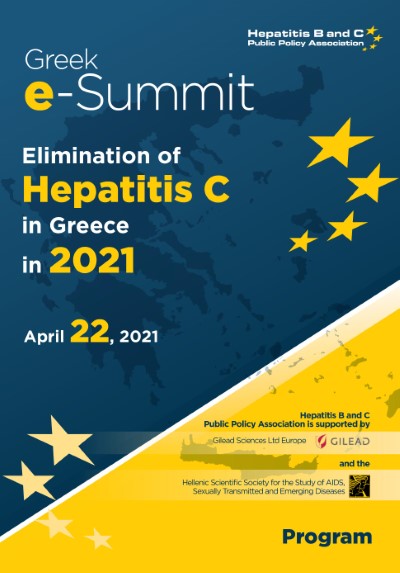Hepatitis C: The beginning of the end—key elements for successful European and national strategies to eliminate HCV in Europe
Summary
![]() Hepatitis C virus (HCV) infection is a major public health problem in the European Union (EU). An estimated 5.6 million Europeans are chronically infected with a wide range of variation in prevalence across European Union countries. Although HCV continues to spread as a largely “silent pandemic,” its elimination is made possible through the availability of the new antiviral drugs and the implementation of preven‐tion practices.
Hepatitis C virus (HCV) infection is a major public health problem in the European Union (EU). An estimated 5.6 million Europeans are chronically infected with a wide range of variation in prevalence across European Union countries. Although HCV continues to spread as a largely “silent pandemic,” its elimination is made possible through the availability of the new antiviral drugs and the implementation of preven‐tion practices.
On 17 February 2016, the Hepatitis B & C Public Policy Association held the first EU HCV Policy Summit in Brussels. This summit was an historic event as it was the first high-level conference focusing on the elimination of HCV at the European Union level.
The meeting brought together the main stakeholders in the field of HCV: clinicians, patient advocacy groups, representatives of key institutions and regional bodies from across European Union; it served as a platform for one of the most significant disease elimination campaigns in Europe and culminated in the presentation of the HCV Elimination Manifesto, calling for the elimination of HCV in Europe by 2030.
The launch of the Elimination Manifesto provides a starting point for action in order to make HCV and its elimination in Europe an explicit public health priority, to ensure that patients, civil society groups and other relevant stakeholders will be directly involved in developing and implementing HCV elimination strategies, to pay particular attention to the links between hepatitis C and social marginalization and to introduce a European Hepatitis Awareness Week.
To read the full article on Wiley go to http://onlinelibrary.wiley.com/doi/10.1111/jvh.2018.25.issue-S1/issuetoc
Contributors:
G. V. Papatheodoridis1 | A. Hatzakis1 | E. Cholongitas1 | R. Baptista-Leite2,3 |
I. Baskozos4 | J. Chhatwal5 | M. Colombo6 | H. Cortez-Pinto7,8 | A. Craxi9 |
D. Goldberg10 | C. Gore11 | A. Kautz12 | J. V. Lazarus13,14 | L. Mendão15,16 |
M. Peck-Radosavljevic17 | H. Razavi18 | E. Schatz19 | N. Tözün20 | P. van Damme21,22 | H. Wedemeyer23 | Y. Yazdanpanah24 | F. Zuure25,26 | M. P. Manns23
REFERENCES:
- Medical School of National, Kapodistrian University of Athens, Athens, Greece
- Institute of Health Sciences, Católica University of Portugal, Lisbon, Portugal
- Faculty of Health, Medicine and Life Sciences, Maastricht University, Maastricht, The Netherlands
- Ministry of Health, Athens, Greece
- Massachusetts General Hospital’ s, Institute for Technology Assessment and Harvard Medical School, Boston, MA, USA
- Clinical and Research Center Humanitas, Rozzano, Italy
- European Association for the Study of the Liver, Geneva, Switzerland
- Faculdade de Medicina, Universidade de Lisbon, Lisbon, Portugal
- University of Palermo, Palermo, Italy
- School of Health and Life Sciences, Glasgow Caledonian University, Glasgow, Scotland, UK
- Hepatitis C Trust, World Hepatitis Alliance, London, UK
- Leberhilfe Projekt gUG, Cologne, Germany
- Barcelonai Institute for Global Health (ISGlobal), Hospital Clínic, University of Barcelona, Barcelona, Spain
- CHIP, Rigshospitalet, University of Copenhagen, Copenhagen, Denmark
- Portuguese Activist Group for HIV/AIDS Treatment, Lisbon, Portugal
- European AIDS Treatment Group, Brussels, Belgium
- Department of Internal Medicine and Gastroenterology, Klagenfurt, Austria
- Center for Disease Analysis, Lafayette, CO, USA
- Correlation Network, Amsterdam, The Netherlands
- Acibadem Mehmet Ali Aydinlar University, Istanbul, Turkey
- Antwerp University, Antwerp, Belgium
- Viral Hepatitis Prevention Board, Antwerp, Belgium
- Hannover Medical School, Hannover, Germany
- INSERM, Université Paris Diderot, Paris, France
- Department of Infectious Diseases Research and Prevention, Public Health Service of Amsterdam, Amsterdam, The Netherlands
- Department of Internal Medicine, Amsterdam Infection and Immunity Institute (AI&II), Academic Medical Center, University of Amsterdam, Amsterdam, The Netherlands

